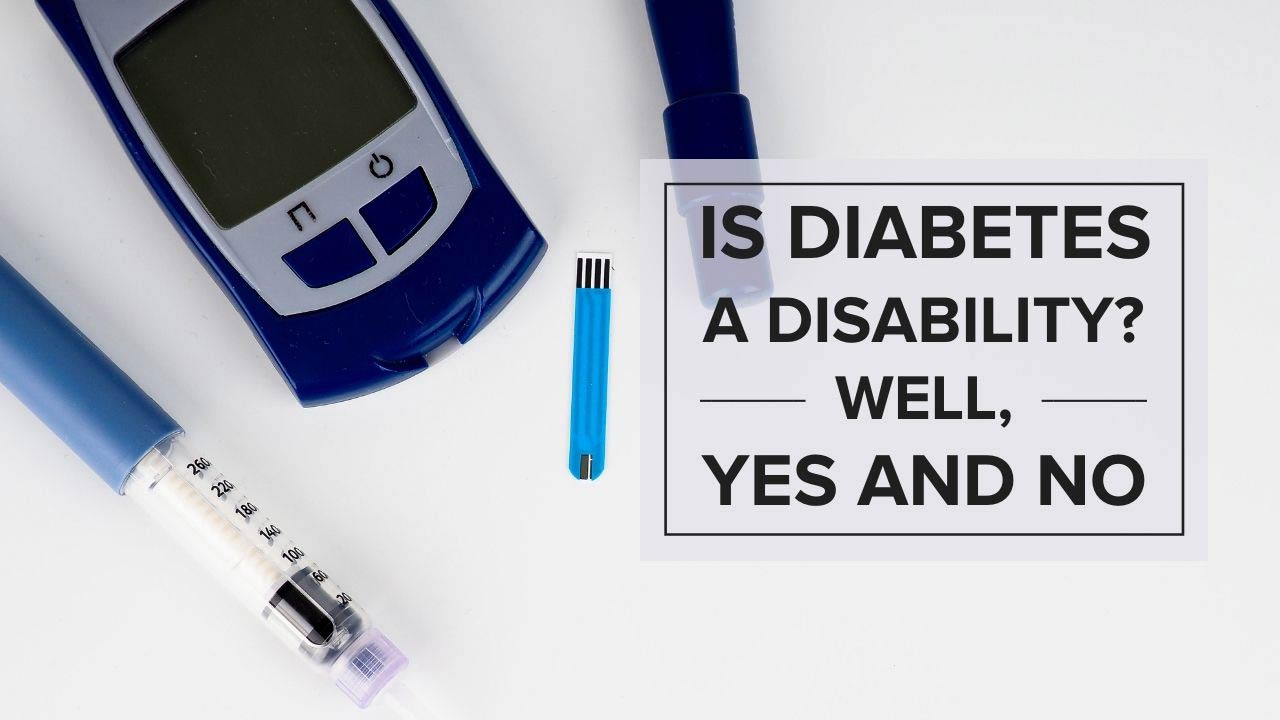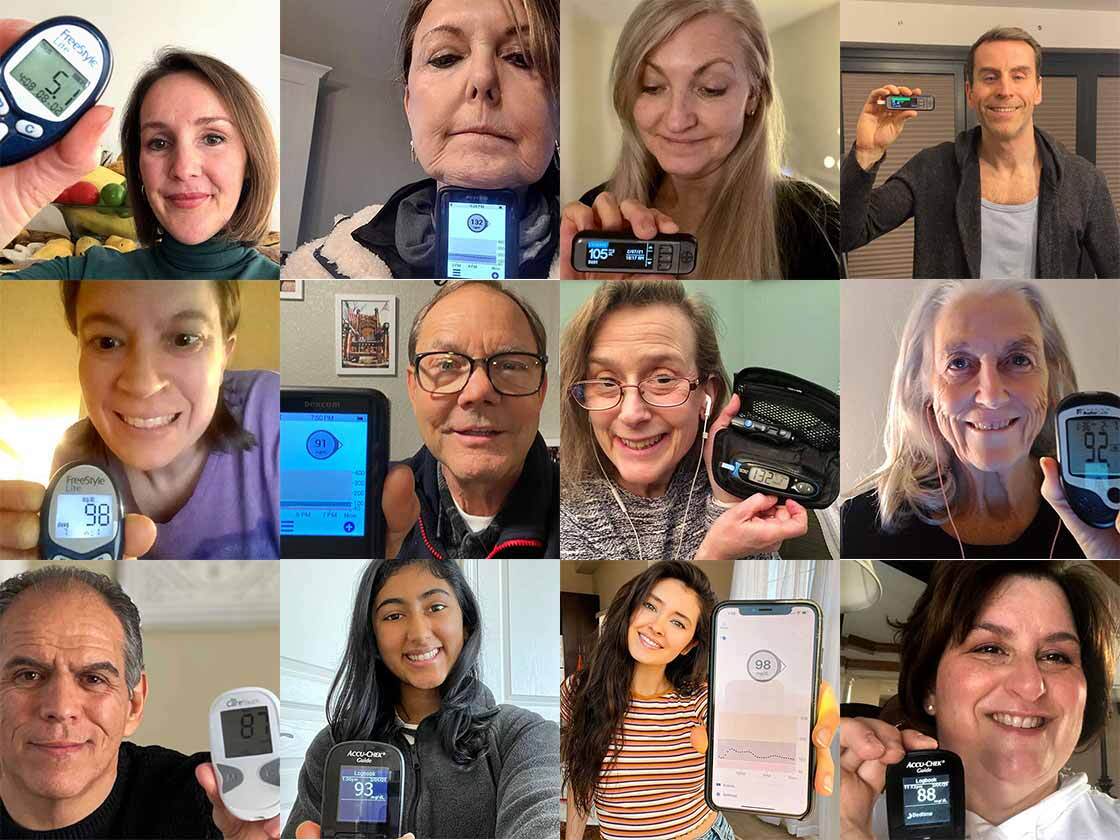
When people think of diabetes, there's often a sense of dread that comes not far behind. But is diabetes a disability? We say 'no!', and here's why.
While there are two different types of diabetes, and one (type 1 diabetes) is not currently curable, you have an incredible amount of control and power over how much diabetes affects your life.

This ranges from completely reversing type 2 diabetes to turning type 1 diabetes into a superpower that gives you fine-tuned control of your body on par with top Olympians. Definitely not the life-shattering disability it was made out to be!
A Legal Question vs a Mentality One
In order to answer this question, we have to break down two aspects of this question:
First, is diabetes a legal disability? When it comes to this question, the answer is yes.
The people who face diabetes, especially type 1 diabetes, face unique challenges that should be acknowledged by the typical legal, medical, and employment protections of any person with a disability! We'll explore these challenges and your thoughts about them below.
But when it comes to living with diabetes, there's a difference between treating diabetes as an unfortunate circumstance and feeling disabled.
Many people who discover that they have diabetes feel disabled, like they're forever going to be limited by their condition. And when it comes to that part of diabetes, we've got quite a bit to say.

Is Diabetes a Disability Legally?
According to US disability law, both type I and type 2 diabetes are classified as disabilities. This means that if you have either of these complications, you qualify for a number of different benefits, protections, and tax credits.
We'll explain each of these areas below.
Protections Under the Americans With Disabilities Act
The Americans With Disabilities Act (ADA) is a federal law that protects disabled people from discrimination in the workplace and by public services.
If you're legally considered to be disabled, the ADA requires employers with fifteen or more employees not to discriminate against someone because of one's disability as long as they can perform their job duties satisfactorily.

This means that if your employer thinks you might be unable to fulfill your job duties, they must first offer reasonable accommodations that can allow you to stay on the job, otherwise it will be considered discrimination.
For people with diabetes, this can be simply accommodating the need to inject insulin, eat more frequently to maintain your proper blood sugar levels, or other challenges.
Qualifications for Social Security Disability Benefits with Diabetes
Another important question people usually care about: is diabetes a disability if you're applying for social security disability benefits, also called Social Security Disability Insurance (SSDI)?
According to US Social Security, people with disabilities significant enough to prevent them from working are eligible for disability insurance and Supplemental Security Income (SSI).
According to the official Social Security Administration (SSA) website, in order to qualify for Social Security Disability Insurance (SSDI) and the Supplemental Security Income (SSI) that comes with it you need two things.
First, you need to have a doctor diagnose you with diabetes type 2 or 1, and second, you need to demonstrate that you have one of the following complications related to diabetes:
"Neuropathy - abnormality of the nervous system that must significantly affect two extremities to the extent that a person experiences a “sustained disturbance” of movement of those extremities, or in walking, or in simply standing.
Acidosis - the abnormal increase in the acidity of bodily fluid that occurs at least once every two months and which is documented by blood tests.
Diabetic Retinopathy - damage to blood vessels inside the eye resulting in a significant loss of peripheral vision in the better of the two eyes, or a significant loss of visual acuity in the better of the two eyes. To meet this criterion, the severity of the damage must be such that the person is virtually blind."
If you don't qualify according to these specific definitions, you won't qualify for disability or SSI benefits from the Social Security Administration.
However, you may be entitled to specific benefits from your municipality, state, or individual insurance. Always worth doing a bit of extra research!
You Should Be Protected, But Your Mentality Should be Limitless
When it comes to people with diabetes, it's an important question to know if you qualify for disability benefits, or qualify for social security. It's also important to know that you may be eligible for protections from discrimination, or may qualify for local tax credits.
But to us, there's a far more important question: will you let high blood glucose control your life?
Whether you're living with diabetes type 1 or type 2, you have a choice. You can resign yourself to a potentially shortened life with constant treatment, complicated symptoms, and medical challenges.
Or you can decide to Master Diabetes.
Because no matter what your challenges, you can overcome this health and challenge.
Understanding the Difference Between Type 1 and Type 2 Diabetes
Both type 1 and type 2 diabetes have similar challenges -- elevated blood sugar levels, and the symptoms that follow, including obesity, elevated blood pressure, heart disease, and the potential for organ, vision, and nerve damage.
However, their causes are different, and either way, you can overcome these challenges!
Type 1 Diabetes, The Closest Form to A Disability
Type 1 diabetes is an autoimmune condition where the body's immune system has mistakenly attacked and destroyed the beta cells in the pancreas that produce insulin.
There is currently no known cure for type 1 diabetes, and people with type 1 diabetes must regularly supplement their bodies with insulin throughout their lives.
The Challenges of Type 1 Diabetes (And the Secret Benefits!)
People with diabetes type 1 often feel that they've gotten the short end of the stick, and when it comes down to it, they will have to supplement insulin daily for the rest of their lives.
But our two founders Robby and Cyrus, who are both living with t1 diabetes, treat this challenge like an opportunity.
This is because, the fact that you do have to pay closer attention to your body means you have an in-depth level of insight into your health that only pro athletes and Olympians usually have.
It's a great way to become inspired as an athlete!
Can You Reverse Type 2 Diabetes?
As for diabetes type 2, the truth is that you can reverse your condition as long as you haven't had diabetes long enough to become insulin-dependent.
The underlying condition that causes type 2 diabetes is insulin resistance, a buildup of dietary fat in cells that aren't meant to store it. These cells reject sugars from the blood, causing your levels to spike.
Fortunately, you can reverse insulin resistance, and in doing so, completely reverse type 2 diabetes!
However, after a prolonged period of time with t2 diabetes, your insulin cells "burn out" after needing to overproduce for so long. At this point, even if you reverse insulin resistance, you'll need to supplement daily insulin.
Your Golden Ticket -- The Mastering Diabetes Method
This is why we created the Mastering Diabetes Method, a comprehensive lifestyle strategy to reverse insulin resistance and take your life back from diabetes. Here are the four simple pillars.
A Low-Fat, Plant-Based, Whole-Food Diet
Since insulin resistance is caused, first and foremost, by the buildup of dietary fat, we start by targeting your diet, with a fun, flavorful, and enjoyable diet that's guaranteed to start reversing insulin resistance.
Daily Movement
We complement this transformative diet with daily movement, which causes a positive feedback loop. Your cells start to demand more energy, you lose more weight, and you feel better, making it more fun to exercise -- and the cycle starts again!
Intermittent Fasting
You can even supercharge your transformation with intermittent fasting, which promotes healthy weight loss at the same time as it improves signs of aging, boosts immunity, and generally improves your mental sharpness.
Decision Trees
And throughout all of these steps, we encourage you to understand your thought process and your impressive progress through decision trees, a convenient, easy-to-track system that helps you understand how the actions you take each day affect your diabetes health.
How The Method Helps with T-1 Diabetes
People with diabetes that depend on regular insulin injections will notice a few major differences:
How The Method Helps with T-2 Diabetes
Meanwhile people with diabetes based on insulin resistance will notice these major differences:
Your Pro Coaches
Even though the steps are simple, and the results are incredible, it can still be difficult to actually execute the Mastering Diabetes Method.
That's where the Mastering Diabetes coaches come in. Our team of top professionals have decades of experience coaching people just like you to overcome diabetes, and thousands have already experienced what we like to call their "A1c Miracle."
You can see an example (well really, dozens of examples) of how you have the ability to make this transformation on our site!
And if you're ready to take back control of your life today, you can join us now by applying for personalized coaching!
Lower Your A1c and Get to Your Ideal Body Weight ... Guaranteed

Your results are guaranteed. Join more than 10,000 ecstatic members today
Personalized coaching puts you in immediate control of your diabetes health, helps you gain energy, improves your quality of life, and reduces or eliminates your meds.
Note: While this article and the methods of the Mastering Diabetes team have been medically reviewed by experts, no article can replace a skilled medical professional.
It bears repeating: we cannot provide medical advice, diagnosis, or treatment based on this article! Please seek out your doctor's advice, and use their advice in tandem with any other form of diabetes coaching.




